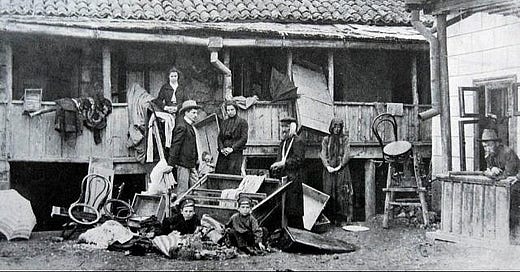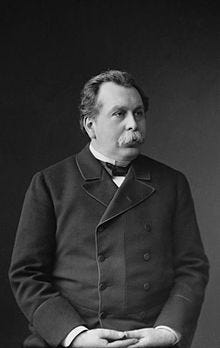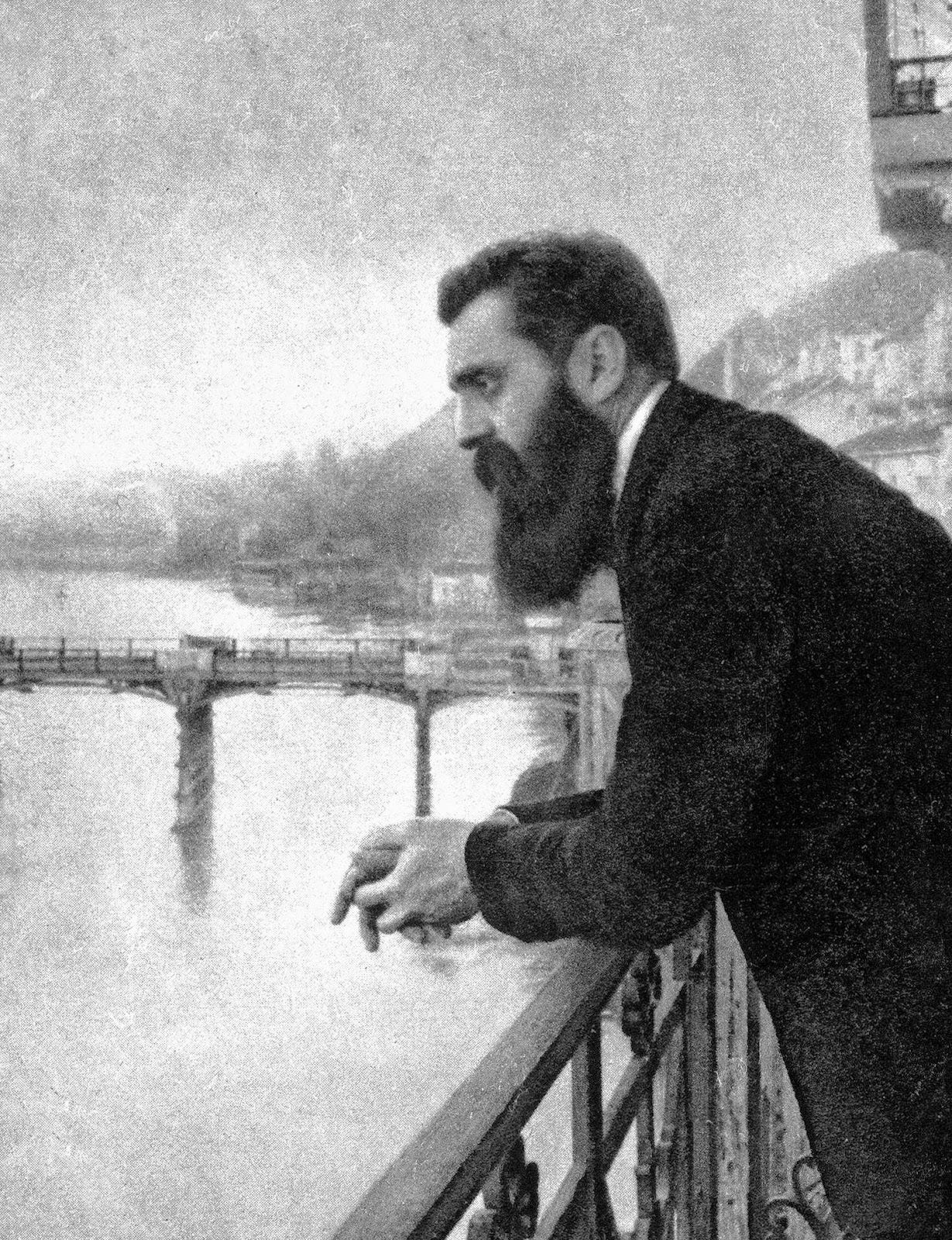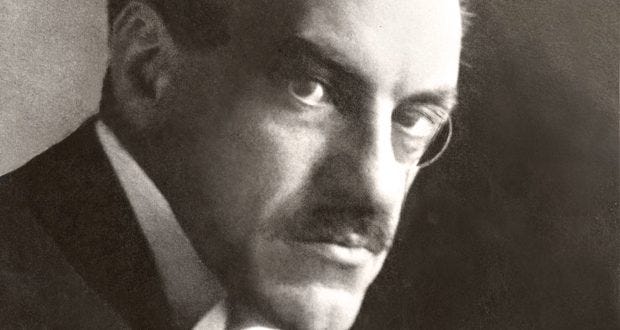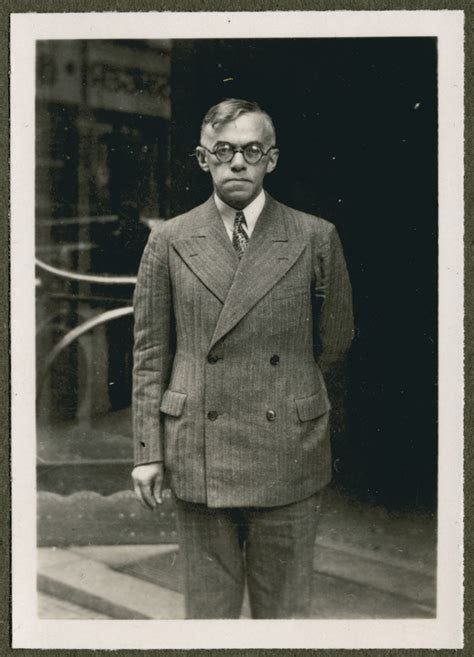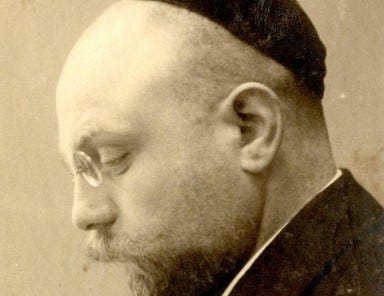If tsarist Russia had an official in charge of antisemitism, it was Interior Minister Vyacheslav von Plehve, who implemented anti-Jewish policy measures, enforced the ghetto limits, and organized actual pogroms like the Kishinev pogrom of 1903.
Plehve had a correspondence with and a meeting with the founder of Zionism, Theodor Herzl. Another tsarist minister, Count Witte, met Herzl as well. Witte told Herzl “If it were possible to drown six or seven million Jews in the Black Sea, I would be perfectly happy to do so, but it is not possible, so we must let them live. But we encourage the Jews to emigrate.”
The tsarist Russian pogroms saw many Jews trying to flee, and most wanted to go to Western Europe, including Britain. This was unhappy news for Zionists, who wanted the Jews to go to Palestine, and unhappy news for Britain’s aristocratic antisemites, who didn’t want more Jews in Britain. Faris Yahya, in his 1978 book Zionist Relations with Nazi Germany, relates that Herzl gave evidence to Britain’s Royal Commission on Alien Immigration in 1902 and 1903, where Herzl “called for the stream of migration to be diverted away from Britain.” Herzl also met up with Colonial Secretary Joseph Chamberlain, who spoke publicly in 1904 about how Zionism was a good idea - and more Jewish migration to Britain, a bad one.
Then there’s Lord Arthur Balfour, who authored the declaration offering Palestine to the Zionists on behalf of the British Empire in 1917. Balfour spoke to Parliament against Jewish immigration: “It would not be to the advantage of the civilisation of the country that there should be an immense body of persons who, by their own action, remained a people apart, and not merely held a religion differing from the vast majority of their fellow-countrymen, but only intermarried among themselves.”
Another Balfour quote along these lines, quoted by Richard Silverstein:
“For as I read its [Zionism’s] meaning it is, among other things, a serious endeavour to mitigate the age-long miseries created for Western civilisation by the presence in its midst of a body which it too long regarded as alien and even hostile, but which it was equally unable to expel or to absorb. Surely, for this if for no other reason it should receive our support.”
The only Jewish member of the British Government, Sir Edwin Montagu, opposed the Balfour declaration: “I assert that there is not a Jewish nation,” he said. “When the Jews are told that Palestine is their national home, every country will immediately desire to get rid of its Jewish citizens, and you will find a population in Palestine driving out its present inhabitants.”
Not only did Herzl disagree with Montagu, but he believed, according to Hannah Arendt (quoted by Faris Yahya) that anti-Semitism could be “used in the same way that boiling water is used to produce steam power.” Anti-Semitism to Herzl was “an overwhelming force.” Jews “would either have to make use of it or be swallowed up by it.” Herzl himself wrote that “the governments of all countries scourged by anti-Semitism will be keenly interested in assisting us to obtain the sovereignty we want.”
Herzl had some hair-raisingly anti-Semitic quotes flowing from his own pen: “We, the Jews, not only have degenerated and are located at the end of the path, we spoiled the blood of all the peoples of Europe … Jews are descended from a mixture of waste of all races.”
“We, the Jews, not only have degenerated and are located at the end of the path, we spoiled the blood of all the peoples of Europe … Jews are descended from a mixture of waste of all races.” - Theodor Herzl
Writer Yarden Katz wrote about Herzl’s beliefs in a recent Mondoweiss article:
“Like other Zionists, Herzl viewed Jews as a kind of “degenerate race.” He thought that Jewish communities “produce an abundance of mediocre intellects who find no outlet,” Jewish agitators that are “rapidly becoming Socialists” and create trouble for governments. Prior to adopting the idea of colonizing Palestine, Herzl thought the best plan for Jews would be mass conversion to Christianity.”
Katz’s article concludes that Zionism is anti-Jewish: “I hope we can move from “not in our name” and the weak reactive claim that “anti-zionism is not antisemitism” to we need to dismantle Israel for our own liberation, and zionism is anti-Jewish.”
Johannesburg-based professor Steven Friedman in his new book Good Jew, Bad Jew: Racism, anti-Semitism and the assault on meaning, elaborated on Herzl: “In 1882 Herzl agreed with the anti-Semite Eugen Duhring that Jews were crooked, lacked moral seriousness and were parasites.” A play that Herzl wrote, The New Ghetto, was full of anti-Semitic stereotypes.
Christian Zionist Laurence Oliphant (1829-1888) wrote a book in 1880 calling for the expulsion of the Palestinians emulating the theft of land from Indigenous nations in North America: “the same system might be pursued which we have adopted with success in Canada with our North American Indian tribes, who are confined to their “reserves,” and live peaceably upon them in the midst of the settled agricultural population.” Oliphant held the local Jewish population of Palestine in contempt. “It is certainly not among the Jews of Jerusalem that I should look for colonists.” [cited by Yakov Rabkin, What is Modern Israel? pg. 45]
From the Zionist perspective, Jews were raw material for the colonization project (much more on this is ahead in the series). And Zionists were not shy about assessing the material and finding it inadequate. Steven Friedman quotes another early Zionist, Max Nordau, who “wanted Zionism to create ‘a new muscle Jew’ who would fight battles rather than run from them. Even the bodies of most Jews (or, at least most Jewish men) were to him a sign of deformity and decay.” The Russian early labor Zionist Aaron David Gordon (quoted by Steven Friedman) said this about Jews:
“We are a parasitic people. We have no roots in the soil, there is no ground beneath our feet. And we are parasites not only in an economic sense, but in spirit, in thought, in poetry, in literature, and in our virtues, our ideals, our higher human aspirations. Every alien movement sweeps us along, every wind in the world carries us. We in ourselves are almost non-existent, so of course we are nothing in the eyes of other people either.”
"The Jewish people," wrote Vladimir Jabotinsky in a 1906 pamphlet, “is a very bad people; its neighbors hate it and rightly so... its only salvation lies in a general immigration to the land of Israel.”
Jabotinsky’s lawyer in his 1920 trial for anti-Palestinian violence was a charismatic Dutch Zionist immigrant named Jacob Israel de Haan. But De Haan became disillusioned with Jabotinsky and began producing anti-Zionist writings for audiences back in Europe. Yakov Rabkin’s 2006 book A Threat From Within: A History of Jewish Opposition to Zionism, tells the story of what happened to De Haan:
“An alliance of Jews, Muslims and Christians for peace stood poised to discredit the minority Zionists, who, imbued with a sense of mission, insisted that they alone spoke in the name of the Jewish people. They ostracized, degraded and insulted De Haan. One incident illustrated the difficulties facing this Western, middle-class Jew who had taken an anti-Zionist position in a highly ideologized society built around fanatical left-wing Russian Zionists. A Dutch tourist related that in the course of a stroll with De Haan through the streets of Jerusalem, several passersby spat upon the ground as they passed: Is this not a sign of disrespect?” asked the tourist. “Not at all, it’s a sign of respect for you; had you not been with me, they would have spat in my face.”
De Haan was assassinated by Zionist agents in 1924 shortly after returning from London. The threat he posed? “The Zionists feared that De Haan would succeed in setting up a rival organization comprised of leading rabbis who would reject the nationalist ambitions of the Zionist movement and establish cooperative relations with Arab leaders.”
In summary: The founders of Zionism expressed extremely racist views about Jews; they agreed with pre-Nazi European anti-Semites in the racist belief that Europe ought to be “cleansed” of Jews, who were believed by both Zionists and anti-Semites to be a “foreign body” of parasitic socialist agitators to be gotten rid of, better “implanted” in a colony somewhere.
The Zionists were more than willing to kill Jews like De Haan on the road to winning their colony. As we’ll see in the next instalment, the Zionists turned out to have a very high tolerance for the sacrifice of Jewish lives for the sake of their project.


